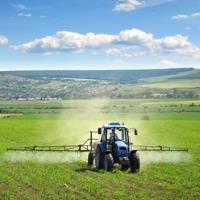(BRUSSELS) – The EU Commission approved Bayer’s acquisition of Monsanto Wednesday, declaring itself satisfied with the parties’ remedies, worth well over EUR 6 billion, to meet Brussels’ competition concerns in full.
“Our decision ensures that there will be effective competition and innovation in seeds, pesticides and digital agriculture markets also after this merger,” said the EU’s Competition Commissioner Margrethe Vestager.
The decision follows an in-depth review of the proposed acquisition of Monsanto, the world’s largest supplier of seeds, which generates most of its sales in the US and Latin America.
Monsanto also sells glyphosate, which is the most used pesticide worldwide to control weeds. Bayer is the second largest supplier of pesticides worldwide, with a stronger focus in Europe. It is also an important globally active seeds supplier for a number of crops. The transaction creates the largest global integrated seed and pesticide player.
The Commission says it has assessed more than 2,000 different product markets and reviewed 2.7 million internal documents. It concluded that the transaction as notified would have significantly reduced competition on price and innovation in Europe and globally on a number of different markets. The Commission also had concerns that it would have strengthened Monsanto’s dominant position on certain markets, where Bayer is an important challenger of Monsanto.
The commitments submitted by Bayer address these competition concerns in full:
- They remove all of the parties’ existing overlaps in seed and pesticide markets, where concerns were raised, by divesting the relevant Bayer businesses and assets.
- They cover Bayer’s global R&D organisation for seeds and traits as well as Bayer’s research activities to develop a challenger product to Monsanto’s glyphosate. They also cover certain Monsanto assets, which in future would have competed with a Bayer seed treatment against nematode worms.
- Finally, Bayer has committed to grant a licence to its entire global digital agriculture product portfolio and pipeline products to ensure continued competition on this emerging market.
The Commission concluded that the divestment package enables a suitable buyer to sustainably replace Bayer’s competitive effect in these markets and continue to innovate, for the benefit of European farmers and consumers.
Bayer has proposed BASF as purchaser for the remedy package. The Commission’s assessment is ongoing whether a) the divestiture to BASF meets all purchaser requirements, and b) whether it creates any problematic overlaps or raises other competition concerns.
Bayer and Monsanto can only implement the transaction when the Commission has completed its review of the proposed buyer.
The Bayer/Monsanto transaction is the third in a row in the seeds and pesticides sector. In line with its case practice, the Commission assesses transactions taking place in the same industry according to the so-called “priority rule” – first come, first served. The assessment of the merger between Bayer and Monsanto has been based on the market situation following the Dow/DuPont merger and the ChemChina/Syngenta merger, taking the remedies in both cases into account.
When it comes to seeds and pesticides the Commission says it has to takle into account concerns beyond competition policy, which include consumer protection, food safety and ensuring the highest standards for the environment and the climate. The strict national and European regulatory standards on these matters will remain just as strict after this merger as before it.
Bayer - Monsanto: the Commission's competition concerns


